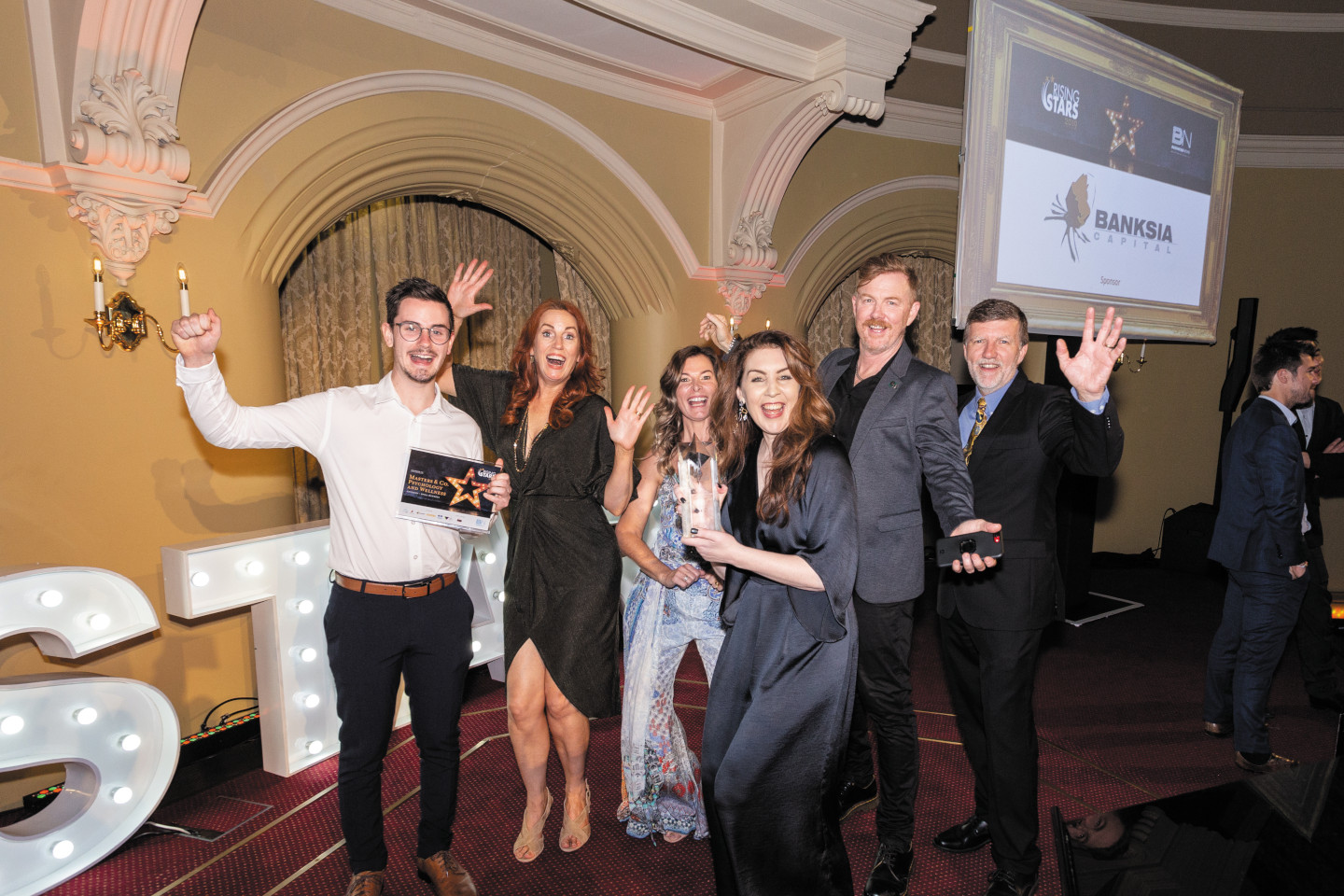In the past five years, Rochelle Masters has seen her small psychology clinic in Perth’s northern suburbs grow through her unique approach to community engagement.


The growing number of high-profile Australians speaking out about their struggles may have changed the discussion around mental health issues in the community, but there remains widespread unwillingness to reach out and seek help.
And Rochelle Masters, managing director of Masters & Co Psychology and Wellness, says the reasons for this are complex.
“We have people visit our clinic from all walks of life, from kids around the age of five to seven through to older adults, irrespective of cultural, religious or political affiliation,” Ms Masters told Business News.
“Mental health challenges are tyrannical oppressors, which is why when you are afflicted with a mental health issue and are in need of care, you need to trust it and feel safe.”
(click here to read a PDF version of the full special report)
Now in the fifth year of running her practice, Ms Masters has engaged with communities across Perth to break down the stigma around mental health issues, more than doubling turnover and employing a staff of 10.
It’s for those efforts that Masters & Co. has won the Business News Rising Star award for best small business, as well as being named the overall winner for 2019.
For Ms Masters, the win is an affirmation of her approach to mental health care, which began seven years ago when she first flicked through the pages of the Mental Health 2020 Strategic Policy.
A weighty, technical document concerning the government’s mental health strategies, she found reading it to be both professionally and personally challenging.
“I saw an enormous need for good mental health care,” Ms Masters said.
“It said there was going to be a cut to funding for the public mental health care system, and it encouraged psychologists like me to embed ourselves in the community and mobilise people.
“When I read that, I thought it meant that if we could each play a small part, then together we could effect a meaningful solution.”
Two years later, Ms Masters began her career as a solo practitioner, working 10-hour weeks and spending the rest of her time as a stay-at-home mum volunteering in the local community.
It didn’t stay that way for long.
In just three months, her practice received 350 referrals from GPs; within a year-and-a-half, that number had grown to the thousands, with Ms Masters quickly gathering a team to work alongside her.
“My 10 hours had obviously blown out a little bit,” she said.
“I had to ask the mayor for help finding a building that could cater to the community’s mental health needs.”
Ms Masters’ challenges weren’t limited to capacity, however.
With fewer than 3,000 registered psychologists across Western Australia, understaffing was, and continues to be, an issue in the sector.
It was a similar story in terms of general awareness for mental health services, Ms Masters said, adding that 30 per cent of people were unaware they could access mental health care through their GP.
With 9.6 million mental health care plans written up nationwide in the past year and only 2.4 million used, she believes problems extended deep into the community.
“You’ve got to ask yourself why, if that many people need mental health care plans but only one in four are using them, where’s the gap?” Ms Masters said.
“There are a lot of reasons for it, but there’s a lot of misunderstanding about our industry that we would like to change.
“As a wife, a mother and a woman, I never intended to become the pin-up girl for mental health issues.
“Yet what happened to me in those earlier years was a realisation that model of care we delivered was effective, and that I loved developing clinics to cater for people’s needs.”
Approaching this challenge has been difficult, Ms Masters said, given the regulation around marketing psychological services in the sector.
For example her business is not allowed to have a star rating on Facebook, nor is it allowed to provide testimonials for its services.
“[Because of that, the] hope aspect of our business can be difficult for people to tangibly hold onto,” Ms Masters said.
“Yet when you do the right thing by one person, there’s nothing that word of mouth can stop.
“A lot of our early opportunities were in word-of-mouth referrals, but having grown since then I’ve seen it’s important to have an expert team and industry leaders join to effect change.
“It’s about serving the community in unique ways and being responsive to their needs.”
New practices
As Masters & Co has evolved, so too has the scope of Ms Masters’ role.
Today, she works with strategists to understand the emerging needs of the community, as well as how to market and build access to mental health services.
“That doesn’t mean I want this business to become the McDonald’s of mental health care, but better access to better outcomes is essential,” Ms Masters said.
“Part of our planning has been trying to be innovative, particularly in the online space and having more clinics across WA.
“We’ve also looked at continuing to educate on prevention and early intervention [in mental illness], partnering with schools and not for profits.
“Anywhere where there are people, we love to get in early and educate around what we need to do to look after each other in the community.”
Given the regulations around marketing mental health services, Ms Masters said an intentional marketing approach would be important to business expansion.
“Most of our clinicians must be okay with being filmed and building a profile,” she said.
“It’s not about hiding behind a closed door, but getting out there and saying, ‘This is who I am and this is what I do with my work’.”
Masters & Co clinics receive between 45 and 65 referrals every 10 days.
“Obviously, there is an enormous need for good mental health care,” Ms Masters said.
“In this [office], we believe that hope intersects with observable science.
“We can’t just give people the science and we can’t just give them hope.
“When the two intersect it’s transformative, and people receive tangible, meaningful change when they come here.
“When that happens, there is meaningful change. People need their suffering reduced, and the difference we make is that we can evidence that change.
“When we’re agile, competent and passionate about what we do; there are a lot of opportunities.
“There’s a lot that has changed about that in the past five years, particularly in the media, but [mental health care] is still an area that is misunderstood.”






